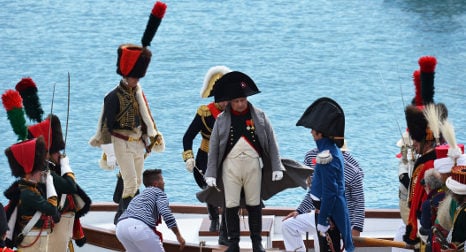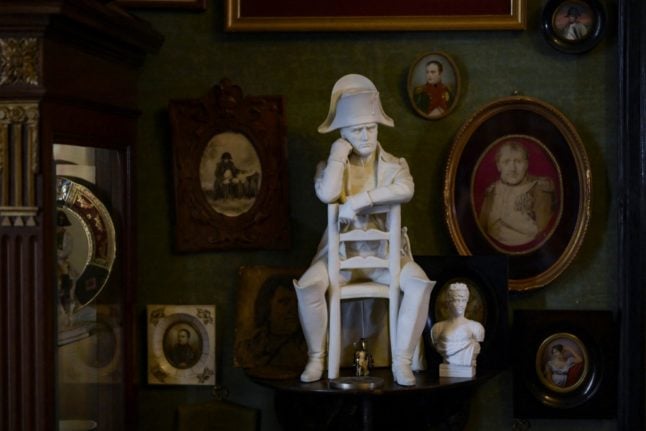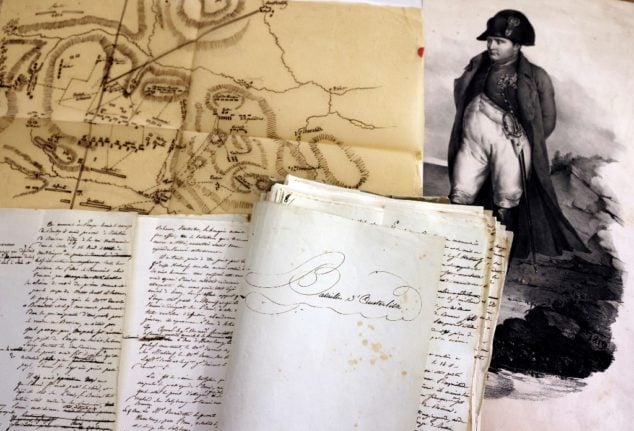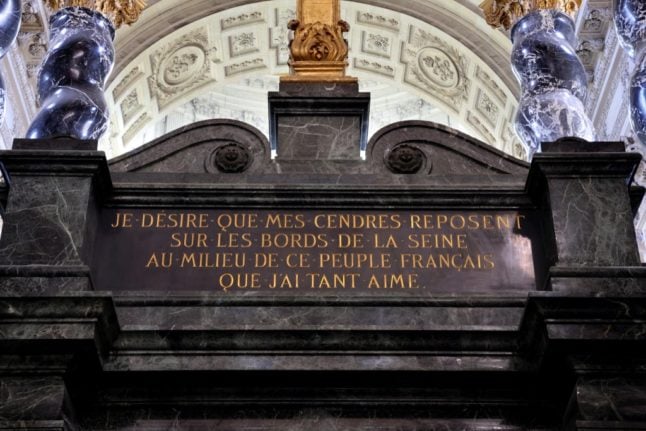Hundreds of enthusiasts from across Europe came together for the start of bicentenary celebrations that will last for the 10 months Napoleon stayed on the Tuscan island.
Sailing on a ship like the one used by the real Napoleon, Roberto Colla, a 59-year-old-doctor in a bicorne hat, arrived to a crowd in period costume.
Colla said the key to being a good Napoleon was being "humble" and remembering that the famous Corsican "stayed with his soldiers – he was one of them".
Colla owns some 600 books about Napoleon, reflecting a historical passion shared with other re-enactors.
Men in period military uniforms, with swords and moustaches galore, roamed the island along with women in flowing robes preparing to welcome the hero of the day.
"It's atmospheric, it's come alive!" said Ann Cockerton, a history graduate from Britain who wore a dress with a large decollete that she had designed herself.
"It makes you feel like you're there, you're back there," she gushed, praising the "fabulous military regiments" who greeted the arriving Napoleon.
"We like travelling and commemorating these things because we love history and a lot of us admire the emperor," she said, admitting that it was difficult being a Napoleon fan while living in famous enemy Britain.
One of the soldiers guarding "Napoleon" was Frenchman Serge, a member of a historical association that every year re-stages the battle of Waterloo in which Napoleon was finally defeated by the British and Prussians.
"I started when I was 17 for fun. I liked the uniform but then I got into it. I became passionate about history," the 42-year-old said as he showed off his rifle.
Jean-Michel Achalle, a 33-year-old Parisian dressed as a horse guard said it was an "extremely moving" experience.
"The atmosphere and the emotions are very strong," he said.
Achalle said he is following the bicentenary closely and last month took part in a re-enactment of Napoleon's farewell to the Imperial Guard in Fontainebleau, a palace near Paris, when he departed for Italy.
'Affectionate' memory
The fiery Corsican was exiled to Elba after his forced abdication in 1814 following the Treaty of Fontainebleau with the Austrian Empire, Prussia and Russia.
He was installed as sovereign of the Italian island, although it was patrolled by Britain's Royal Navy.
Napoleon escaped to France in 1815 but, following his defeat at Waterloo, he was exiled again – this time to the remote island of Saint Helena in the South Atlantic.
During his stay on Elba, Napoleon rested from his battles, went hunting and organised grand balls.
But he was also an active local governor of his tiny kingdom, completing large public works projects including roads, schools, a hospital and a theatre.
"Residents of the island have a very good image of Napoleon, even an affectionate one. By the time he left, the island had entered the modern era," said Gloria Peria, a historian and head of the island's archives.
"More than an exile, it was a reign," she said.
Peria said Napoleon chose Elba because it was close to the mainland but also could be easily defended since "his greatest fear was being assassinated".
"Napoleon" certainly received a triumphant welcome on Sunday, with a cannon salute and cheers from hundreds of people in the port.
There was one jarring detail, however.
As he was handed the keys to the island at a ceremony, a drone buzzed overhead.
Don't miss a story about Italy – Join us on Facebook and Twitter.





 Please whitelist us to continue reading.
Please whitelist us to continue reading.
Member comments